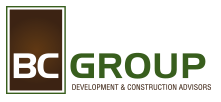What is Included in Commercial Real Estate Development Management?
Commercial real estate development management encompasses a broad range of activities that guide a development project from conception to completion. When a property development and construction management company takes on a project, it typically covers several key stages and responsibilities:
- Market Analysis and Feasibility Studies: Before any physical work begins, a thorough analysis of the local market is conducted. This includes studying demographic data, economic trends, and real estate market conditions to assess the feasibility of the proposed development. It helps in understanding the demand for certain types of properties (office, retail, industrial, etc.) and the potential return on investment (ROI).
- Site Selection and Acquisition: Identifying and acquiring the right site is crucial. This involves evaluating various locations based on the project’s needs, zoning requirements, environmental conditions, and the overall development strategy. Negotiating purchase terms and navigating through legal processes are also part of this phase.
- Project Conceptualization and Design: Once the site is secured, the focus shifts to conceptualizing the project. This includes determining the type and scale of development, architectural design, space planning, sustainability considerations, and compliance with local codes and regulations. Engaging architects, engineers, and other specialists is common in this stage.
- Financial Planning and Securing Funding: Developing a detailed financial plan that covers the project’s cost estimates, projected revenues, funding sources, and investment returns is crucial. This stage may involve securing loans, attracting investors, or leveraging other financing options.
- Permitting and Approvals: Navigating the complex landscape of local, state, and federal regulations to obtain necessary permits and approvals is a critical step. This can involve environmental impact assessments, building permits, land-use approvals, and more.
- Construction Management: Overseeing the construction process to ensure that it adheres to the planned timeline, budget, and quality standards. This includes selecting contractors, managing construction bids, overseeing day-to-day operations, and ensuring compliance with safety regulations.
- Marketing and Leasing: Developing and implementing a marketing strategy to attract tenants or buyers. This can include branding, advertising, engaging real estate brokers, setting lease terms, and conducting negotiations.
- Project Delivery and Closeout: Once construction is completed, the project is prepared for occupancy. This involves conducting final inspections, obtaining certificates of occupancy, and addressing any punch list items. Managing the transition to operational status, including handing over to property managers or new owners, is also part of this phase.
- Asset Management and Operational Planning: For developments that the company retains ownership of, ongoing management of the property is necessary. This includes operational planning, maintenance, tenant relations, and financial management to ensure the asset’s value is maximized over time.
- Sustainability and Community Integration: Increasingly, developments are being designed with sustainability in mind, incorporating green building practices, energy efficiency, and community integration. This involves planning for the long-term environmental impact of the development and its role within the local community.
A property development and construction management company may be involved in all these stages or be brought in to handle specific aspects of the project, depending on the client’s needs and the nature of the project. Their goal is to ensure the project’s success by managing risks, controlling costs, and achieving the desired outcomes for their clients and stakeholders.
